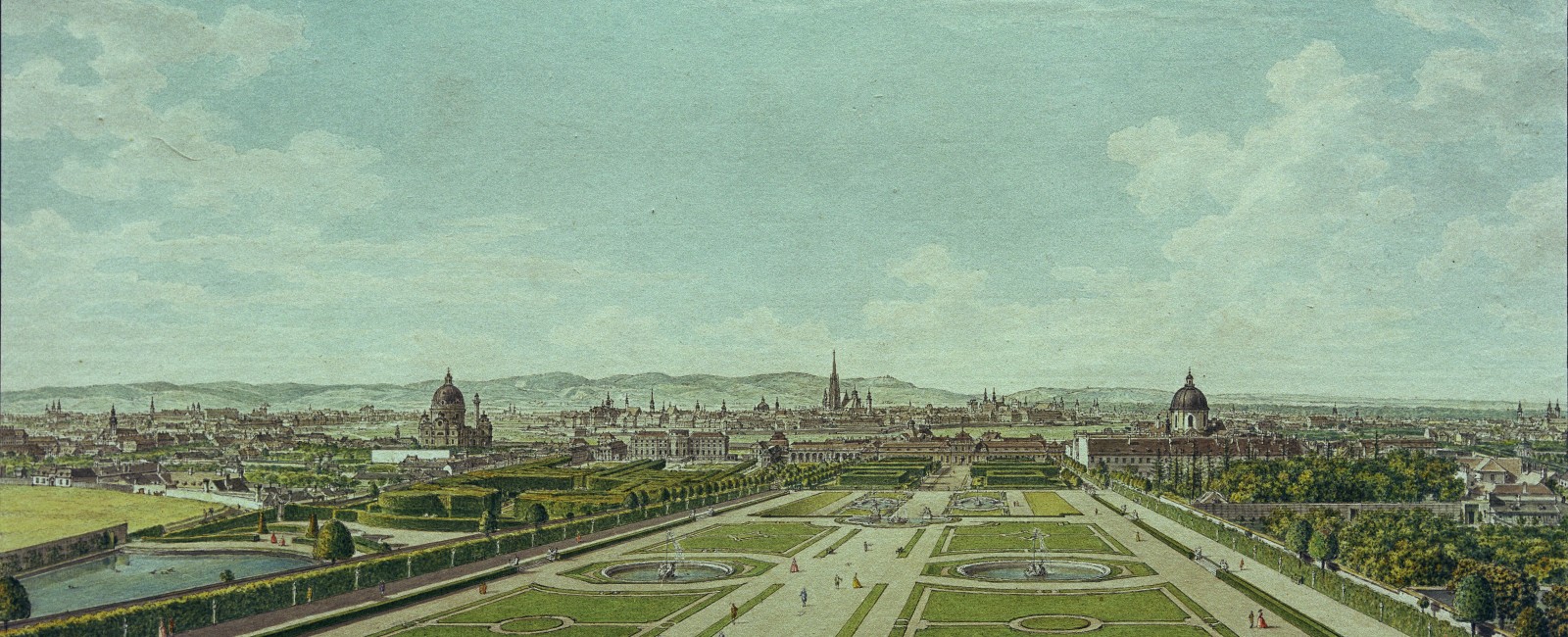
In January 2023, the English Baroque Soloists and John Eliot Gardiner performed a programme of symphonic works by Haydn and Mozart in venues across Europe.
English Baroque Soloists
John Eliot Gardiner conductor
Isabelle Faust - Violin
Antoine Tamestit - Viola
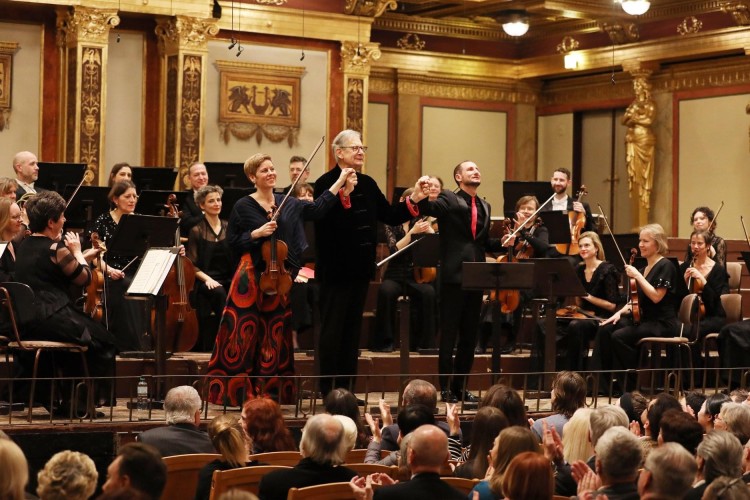
Isabelle Faust, John Eliot Gardiner and Antoine Tamestit receiving applause at the Musikverein, Vienna - Credit: Dieter Nagl
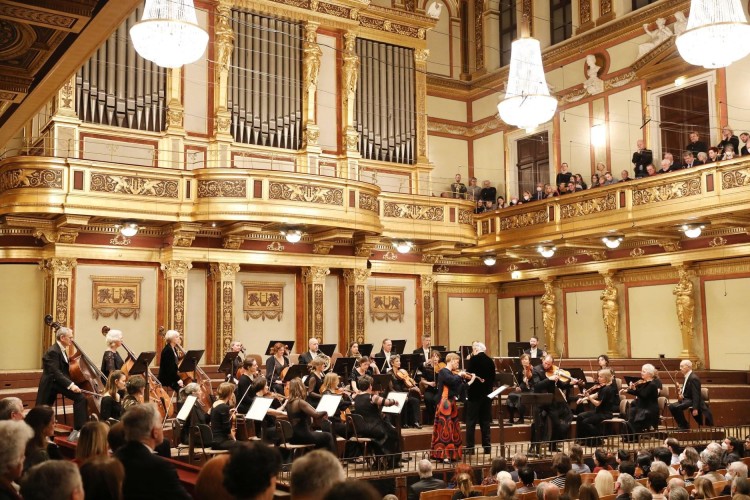
English Baroque Soloists performing with John Eliot Gardiner at the Musikverein, Vienna - Credit: Dieter Nagl
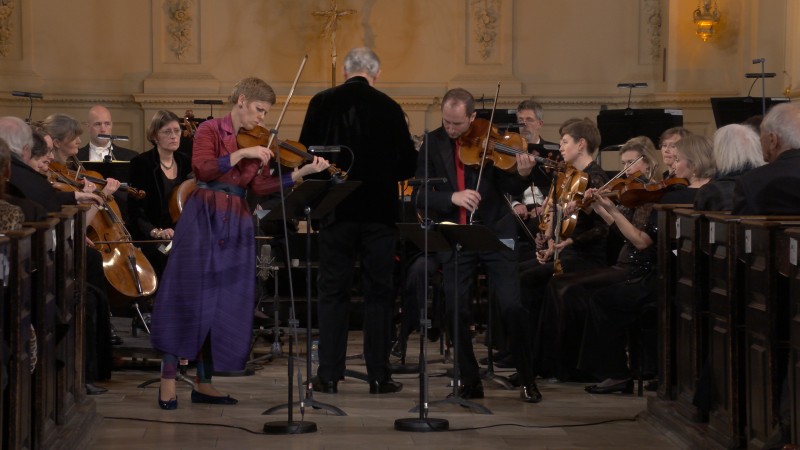
Isabelle Faust and Antoine Tamestit perform with English Baroque soloists at St Martin-in-the-Fields, London - Credit: Stagecast
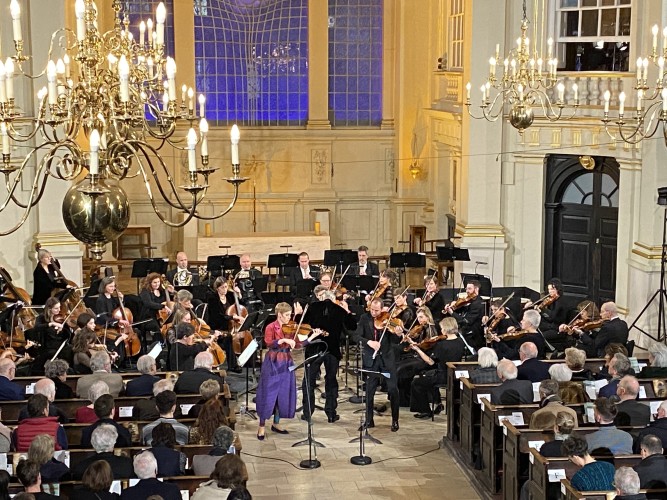
Performing Haydn & Mozart at our London home - St Martin-in-the-Fields, London with Isabelle Faust and Antoine Tamestit
In January 2023, the English Baroque Soloists and John Eliot Gardiner performed a programme of symphonic works by Haydn and Mozart in venues across Europe.
Programme
Haydn – Symphony No. 84 in E-flat major
Mozart – Sinfonia Concertante for violin, viola and orchestra in E-flat major K.364
Mozart – Symphony No. 36 in C major “Linz” K.425
The English Baroque Soloists were joined by Isabelle Faust and Antoine Tamestit, two of the most revelatory and poetic performers working today, for a programme of dazzling orchestral works by Haydn and Mozart. They are the ideal partners for Mozart’s Sinfonia concertante, which plumbs the depths of pathos in its slow movement but also reveals sonorous grandeur, a yearning lyricism and, in the end, a skittish wit.
The piece was preceded by one of the symphonies which Haydn wrote in 1785-6 for the Parisian concert organisation Le concert de la Loge Olympique. In accordance with Parisian taste, it features colourful wind writing, and the second movement is an exquisite set of variations.
Mozart and his wife Constanze were on their way from Salzburg to Vienna when they stopped for a few days in Linz at the invitation of their friend, Count Thun-Hohenstein. Mozart wrote in a letter on 31 October 1783 that a concert had been arranged for 4 November, and ‘I didn’t bring a single symphony with me, so I’ll have to write a new one at breakneck speed’. Despite that haste, his Symphony no 36 in C, nicknamed ‘Linz’, is one of his finest symphonies, venturing into uncharted territory (the opening movement is his first to include a slow introduction) and giving us a haunting slow movement, a Haydn-esque siciliana.
Concert dates
Monday 9 January 2023
Cologne Philharmonie, Germany
Tuesday 10 January 2023
Liederhalle, Wolfsburg, Germany
Wednessday 11 January 2023
Musikverein, Vienna, Austria
Friday 13 January 2023
St Martin-in-the-Fields, London, UK
Saturday 14 January 2023
Müpa, Budapest, Hungary
Monday 16 January 2023
Isarphilharmonie, Munich, Germany
Reviews
Cologne
Bachtrack ★★★★★ - Haydn’s Symphony No. 84 – ‘Coupled with inimitable quick liveliness and unity in phrasing, accents and dynamics as well as rousing brilliance and tautness of the luminous high and grumpy low strings, they took themselves and the audience on adventure-foretelling tours in the first movement.’
Wolfsburg
Aller-Zeitung - ‘The dynamic range of the ensemble was impressive, ranging perfectly from a pianissimo on the verge of dying away to a pompous fortissimo. This continued in Mozart’s “Sinfonia Concertante KV 364”. Isabella Faust (violin) and Antoine Tamestit (viola) radiated fine musicality and sophisticated technique. They engaged in musical conversations with the motifs, then let melodic lines run from one instrument to the other as if the two were merging into one.’
Aller-Zeitung - ‘John Eliot is considered one of the most innovative and impressive conductors of our time. He always manages to interpret classic music in new and exciting ways. At the same time, he is intensively involved with early music and, with the English Baroque Soloists, founded an ensemble that many consider to be a global benchmark for historically oriented concert performances.’
Kultur & Leben - ‘At the latest in Mozart’s Sinfonia Concertante with violinist Isabelle Faust and violist Antoine Tamestit, everything that makes a great concert could be experienced: light and dark, lightness and scrupulousness, dazzling virtuosity and in-depth exploration of sound.’
Kultur & Leben - ‘There was no display of virtuosity for its own sake, everything was genuine dialogue and reference to one another, including the delicately and flawlessly partaking orchestra.’
Vienna
Weiner Zeitung - ‘The English Baroque Soloists, motivated to the last podium, were enchanted and wove a fragrant, springy soundscape into which violin and viola immersed themselves, only to shine again in no time.’
St Martin-in-the-Fields
The Arts Desk ★★★★★ - 'There was amazement even as early as the opening orchestral ensemble here, Faust and Tamestit joining their fellow violinists and viola-players and acting as two more conductors to bring a crescendo to a climax even Rossini, let alone Mozart, could only have dreamed about. The two were peerlessly together in harmony, keeping vibrato to a minimum to match the period-instrument approach, but didn’t try to close the gap between their very distinctive personalities in solo work.’
The Telegraph ★★★★ - ‘The grandeur of Mozart’s symphony sometimes gave way to moments of almost romantic mystery, which Gardiner and the players made sure we noticed. In all an evening of pure joy, which cast a glow over a damp January evening.’
The Guardian ★★★★ - ‘Both soloists revelled in long lines, their expressive ease contagious; the orchestra audibly relaxed. It’s hard to imagine this piece played better.’
Bachtrack ★★★★ - Haydn’s Symphony no. 84 in E flat major - ‘The wind cadenza of the Andante was a pungent delight with these period instruments, and the Vivace finale was spirited indeed.’
Munich
BR Klassik - ‘When the first notes of the “Sinfonia concertante” are played, you can feel: this is the music that the musicians have deeply internalized. The energy is right from the first note, the dynamics are finely balanced, the motifs are played vividly down to the smallest ramifications.’
Abendzeitung-muenchen - ‘Gardiner’s musicians are great Mozart interpreters. Nothing ripples, everything breathes and arises out of the moment. In contrast to other chamber orchestras, the English Baroque Soloists do not play across dynamic contrasts either: they understand piano and forte as an expressive value.’
Süddeutsche Zeitung - ‘Above all, elegance was the order of the day, especially in Mozart’s Sinfonia concertante. Violist Antoine Tamestit played with the self-confidence of a modern classical music star, but Isabelle Faust, audibly more experienced in historical performance practice, suppressed a lot of ego, breathed with the Gardiner troupe and was therefore enchanting.’